The Block in a Box team explore whether apartment living is losing its appeal.
As we emerge from the pandemic, research is starting to show that the property market is changing, significantly. The new lean towards working from home, a reminder of the importance of time with family and a renewed appreciation for a personal, outside space are all noted as factors.
In this article we wanted to explore some of the trends noted in in investment firm FJP’s recent research, using the statistics that sprung from their survey of over 1,100 UK adults who were either home owners or who were in the market to buy in December 2021.
Most notably, the study found that 24% of those surveyed felt that the pandemic had fundamentally changed what they look for in a home– so let’s explore the reasons behind that as well as what it may mean for apartment living in years to come.
“23% believe their priorities have evolved given the rise of remote working”
The most obvious shift in people’s lives post-pandemic is the new availability of flexible, hybrid or completely remote roles on the jobs market. During the Government-enforced lockdowns, employers were forced into a nationwide homeworking experiment and, as it turns out, they found that productivity quite often increased, worker were happier and employees felt a better work-life balance had been struck.
This has left many employers much more open to flexible working options, with 85% of managers now believing that having teams with remote workers will become the new norm- a shift that has been largely embraced by those previously tied to a desk to complete tasks that can be completed anywhere with a decent internet connection.
The daily commute to urban areas may also be biting the dust for many (a win for exhausted commuters, empty wallets and eco-warriors everywhere), meaning that options are opening up for moving further out into the countryside.
Rural properties often also have the added allure of outside space- another factor that became an issue for many homeowners during the lockdowns. Spending so much time at home has opened many people’s eyes to the need for private gardens and proximity to public spaces for exercise and general enjoyment.
“17% are now inclined to live in a different part of the UK”
The pandemic certainly made us all acutely aware of the precious time we have with family and friends, and this unsurprising statistic shows that many people may also be taking the opportunity to move closer to loved ones and/or to more affordable areas of the country now that they can maintain their employment regardless of location.
“Covid has lessened the appeal of living in an urban area for 26% of respondents”
Homeworking enables workers complete their tasks from anywhere, which begs the question, why would people continue to snap up extortionately expensive, low square footage, leasehold flats in a city centre, when they could just as easily get more for their money elsewhere?
Mental wellbeing, self-care and quality of life has also moved to the forefront as the pandemic has made us all aware of our own mortality and the fragility of life. It’s common knowledge that countryside living has a positive impact on both physical and mental wellbeing with fresher air, access to outside space, larger homes and a lower cost of living. In fact The Southern Medical Association states that “On average in the UK, people living in predominantly rural areas have a two-year longer life expectancy and rate their wellbeing as slightly higher than those in predominantly urban areas.”
“19% say the pandemic has made them dissatisfied with their current home”
With homeworking and lockdowns came ample opportunity for scrutiny of our surroundings. That bit of DIY you’ve been meaning to do became a glaring necessity. The office space you’ve always dreamed of now became essential. For some people, especially those with no outside space and in smaller apartments, the walls felt like they were closing in.
Share to Buy and housing association Peabody’s early 2021 survey found that:
- For 64% of first-time buyers, having a private garden is more important to them since the start of the pandemic
- 61% also said access to nearby open space was now more important to them, rising to 68% for the Londoners surveyed
- 50% stated that a space to work from home was a priority
Lisa Crush, Director of Sales and Marketing for Peabody, commented: “People’s appreciation of the space they inhabit, their immediate surroundings and the lifestyle that can be enjoyed from it, is more significant than ever. We know that a home is more than just a place to live and we are placing greater emphasis on amenities such as outdoor space, roof gardens, fitness areas and co-working facilities. The home has become far more than just the four walls that surround it.”
What does this mean for the flats market?
Before we all start revising our CVs, it’s not all doom and gloom for the leasehold flats market.
Property Market Eye did report that January 2022 saw a “record high demand for family homes”, however, they also went on to report that “In the flats market, we are already seeing a ‘normalisation’ – with a returning appetite from international markets, workers and students moving to the city for lifestyle and careers, leading to bounce-back in demand for flats in city centres after more muted market conditions during the pandemic.”– a comforting read for those in the block management industry.
It seems to allure of night life, convenience culture and a close proximity to workplaces may be enough to keep the flats market stable, or even allow it to thrive once more. Written in December 2021, the title of an article in the Guardian gives even more assurance: “UK cities attract more property hunters as searches for flats soar.”
The article goes on the state that “UK property prices hit record levels during the pandemic as factors including the rise of home and flexible working fuelled a buying boom outside cities. However, as staff returned to offices with flexible and hybrid working patterns through the autumn – prior to the emergence of Omicron – interest in flats has surged…Rightmove said that flats had become the most in-demand property type among prospective buyers, supplanting the popularity of houses throughout the pandemic.”
Block in a Box not only provides information on how to protect your block of flats against emergencies over winter. We can also help with utilities, repairs, insurance, health and safety, and just about any other issue a flat owner or manager might face. To learn more about leasehold management companies or freehold management companies, contact our friendly and professional team today on 0333 0154 145.


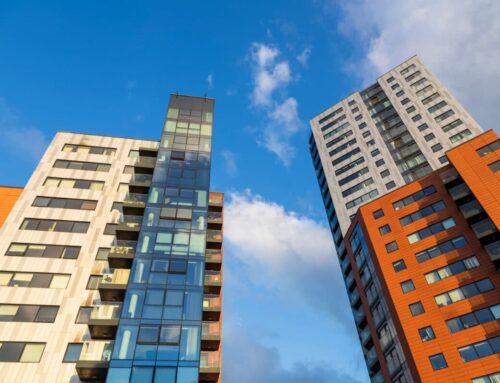
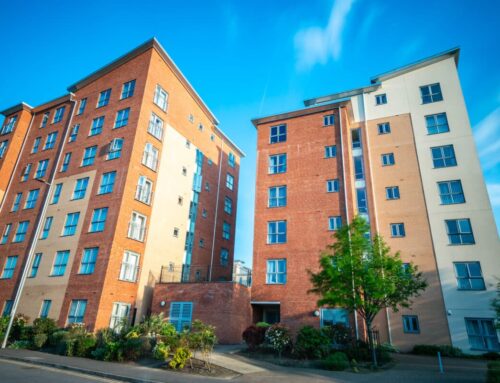
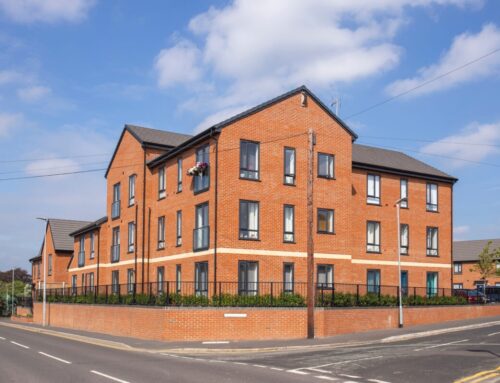
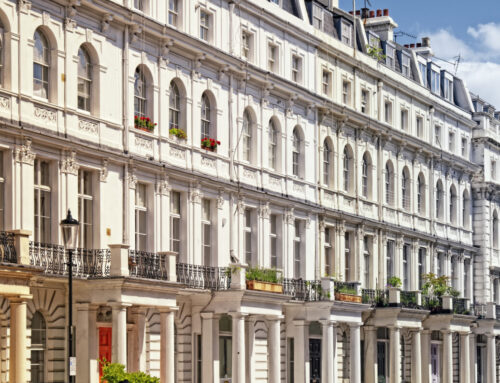
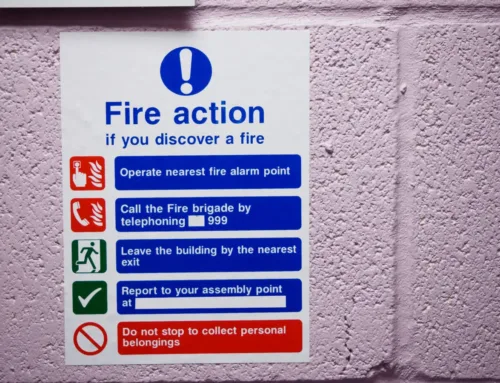
Leave A Comment